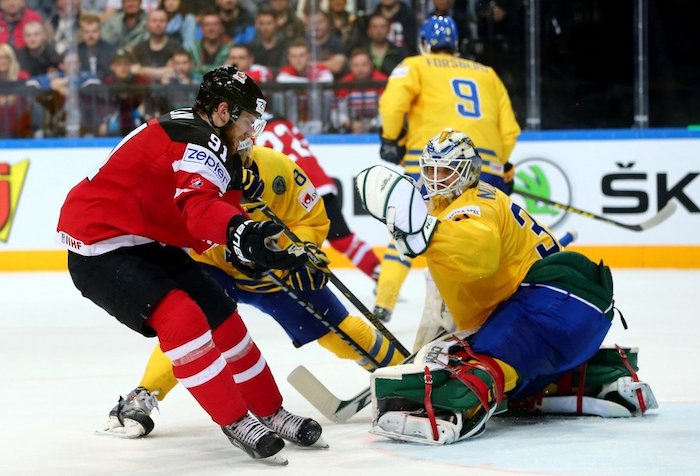Also Interesting
60% of Canadians gamble each month – why the industry is going from strength to strength

When it comes to regulating gambling, Canada has a somewhat relaxed approach. The Canadian Gaming Association oversees the industry, but it’s up to individual provinces to enact and enforce any laws relating to online casino gaming, sports betting, traditional casino gaming, and other forms of gambling.
Canada’s online casino gaming laws are not totally clear, but individual provinces are starting to put this right. Ontario was the first and did so when it launched its own regulated igaming market in April 2022. Now some other provinces have followed suit, creating a safer igaming environment for players in those provinces. Below is a look at gambling in Canada compared to other parts of the world, at gaming laws in Alberta compared to other provinces, and at the future of the Canadian, US, and UK gambling industries.
Canada: a forever love of gambling
Gambling in some form or other has always been popular in Canada. Way back in the 1990s, research found six in ten Canadians (60%) gambled every month. Additionally, four in ten (43%) spent between 1 and 20 Canadian dollars on gambling. Fast forward to today and the Canadian gambling market is worth 14.2 billion US dollars as of January 2024, according to data on the website of consumer and market data company Statista.
It seems Canada enjoys wagering just as much as two other countries that love a gamble: the US and the UK. Data on the Statista website shows that 49% of US adults took part in gambling activities in 2023. Fifty-six percent said their attitude towards gambling had relaxed, compared to the 50% of 2019.
The UK returned similar stats for the same year. Forty-eight percent of adults reported engaging in gambling activity. Online casinos generated the most gross gambling yield in 2023, but it was the nation’s National Lottery that people played the most.

Alberta: following Ontario’s lead
The regulatory developments in Ontario have triggered movement in Alberta. In May 2024, Bill 16, the Red Tape Reduction Amendment Act, made it through the process and later received Royal Assent to become law. The act removes the monopoly of gaming by a single government entity and will allow private operators, licensed by Alberta’s provincial regulator, to provide online gaming services in Alberta, meaning players will have a choice of more than one Alberta online casino to play at.
The regulation transforms Alberta into one of the more liberal provinces when it comes to online gambling, others being Quebec, Ontario, and British Columbia.
Several provinces, such as Novia Scotia and Northwest Territories, have no provincially regulated online gaming sites. Some also restrict betting on horse racing and/or other types of sports betting, obliging citizens to use international betting sites for freedom from caps and betting on as many events as they wish.

What lies ahead for the Canadian, US, and UK gambling industries?
Canada’s appetite for gambling is clear, and the industry’s online sector is beginning to thrive. Ontario has enjoyed vast success by creating its own regulated market, one which, in just its first year, saw Canadians place billions in wagers and the industry itself generate more than a billion in total gaming revenue.
Canada can expect to see other provinces follow Ontario’s lead and allow private operators to provide services in the province under license. The purpose of the regulation is player protection. Any province that develops a regulated market will focus on this, so there will also be regulations around the advertising of gambling services.
The US
Gambling online is the future for the US, too, although states are slow to legalize it. As of September 2024, 38 states had legalized sports betting, following the US Supreme Court’s ruling that states could regulate sports gambling directly.
Despite allowing sports betting, some states only permit in-person betting, and only a few states allow online casino gaming. Operators believe online casino gaming is the future of gambling.
The UK
In the UK, the use of artificial intelligence (AI) will get bigger and bigger. Companies have realized AI can enhance players’ experience and are embracing it more and more. For instance, sports betting websites can use it to crunch data and provide iGamers with stats and other data to make better betting decisions. They’re also understanding they can use AI to prioritize content players are likely to be interested in and to personalize their offerings and services to players’ preferences.
Canada enjoys gambling as much as America and the UK. Although laws around igaming are more of a grey area in Canada, some provinces are clearing the issue up by creating regulated markets and experiencing great success. As time goes by, more are sure to follow.
Also Interesting
Historic Return: NHL Confirms Player Participation in 2026 Winter Olympics

The NHL has officially confirmed the inclusion of its players in the 2026 Winter Olympics in Milan-Cortina, Italy, following a 12-year absence that left the fans craving the excitement of the real best-on-best international hockey. The announcement is a historical event, as it goes back to the Olympic arena where the hockey powerhouse nations of the world will eventually be faced with their complete NHL prowess.
The ruling has not only shaken the hockey fraternity but also the sports fraternity at large, as it has generated early predictions, betting debates, and revived rivalries. Also, such large websites as GGBet, where many fans place their bets, have also been on the lookout, offering odds and analysis on which country will win gold.
A Long-Awaited Comeback
Since the 2014 Olympics in Sochi, NHL players have not been given the chance to play in the Olympics. The spectators have since witnessed world championships that, even though competitive, did not have the superstar appeal of Olympic hockey. This decision of the league in selecting the players to Milan-Cortina is a recreation of the desires of the NHL and the international arena to become one again.
The 2026 tournament will be the one offering the excitement, talent, and passion that will be fitting among NHL players. These legends, such as Sidney Crosby, Connor McDavid, Auston Matthews, and Leon Draisaitl, could play with young players like Jack Hughes and Tim Stützle – that sort of experience and youth.
The Tournament Breakdown
The event in hockey will take place between 11 and 22 February 2026, and the team count will be 12, which will be divided into three groups:
● A: Canada, Switzerland, Czechia, France.
● B: Italy, Finland, Sweden, Slovakia.
● C: Latvia, Denmark, the US, Germany.
The teams will be playing three pre-elimination games followed by play-off, which will lead to the final match, and a gold medal will be given on February 22.
Slovakia is going to play against Finland, and Sweden against Italy. Team USA starts playing on February 12, and Team Canada plays against Czechia. The matches would all be at either the Santagiulia Ice Hockey Arena or the Rho Ice Hockey Arena, both in Milan.
Why This Moment Matters
It is not only entertainment but a legacy that the NHL has gone back to the Olympics. To the league, it reestablishes itself as the world body in professional hockey. To players, it makes their lifelong dream of playing in the national team a reality in the biggest sporting arena. And to fans, it revives the magic that made such moments as Crosby scoring his Golden Goal in Vancouver 2010 unforgettable.
Nevertheless, beyond the ice, such a move will make the NHL more global and strengthen the new generation of sportsmen. The Games of 2026 are expected to achieve a huge global following, whereby fans in North America, Europe, and other continents will be reached.
Looking Ahead
As the opening of February 2026 approaches, the teams are plotting, investigating, and preparing to contest a tournament that numerous people are calling the most competitive Olympic hockey tournament to date. The already existing dream is Canada vs. USA, Finland vs. Sweden, and national pride will clash against the NHL-type talent.
Final Thoughts
It is not a sports story, but a cultural phenomenon because NHL players are returning to the 2026 Winter Olympics. It is an embodiment of unity, excellence, and the unadulterated affection of hockey. The fans all around the world are eagerly awaiting the days when the puck will drop in Milan and they will be watching a show that has been 12 years in the making.
The tournament will not be remembered for the successive gold medals, but rather for the first face-off to the final gold medal celebration. It can be either your country that wins; it could be just watching the magic, but in any case, one thing is certain: the Olympics are back, and the game has never been this alive.
Also Interesting
From Innovation Hubs to Digital Habits, How Work and Leisure Are Changing in Alberta

Things have been changing in Alberta. The province isn’t just about oil and cattle anymore. Along with the wide-open skies, there’s a growing sense of invention. Just taking a walk through Calgary or Edmonton, you can see a difference from a few years ago. You’ll see people tapping away on laptops in coffee shops and talking about new ideas.
The workplace also looks completely different compared to a few years ago. Times have changed, with people being able to work from home, coffee shops, or any remote setting. Boring old offices have changed into relaxed lounges and coffee corners, which help to inspire creativity. Instead of traditional classrooms, learners can now do a lot of their lessons online.
But it’s not all about work. How people relax and unwind has also changed. Streaming their favourite show, gaming, and online entertainment have definitely become a part of everyday life. When the weather gets too cold or the schedule becomes too busy, entertainment is just a click away.
Online gaming has grown into a favorite digital pastime. Much like the best online casinos in the country, the fun comes from having variety. Some players chase the excitement of high-stakes games, while others prefer slower, social ones that let them chat with friends. There are games to suit every style and mood. There are also great incentives to look out for, like huge welcome bonuses, free spins, and VIP and loyalty points (source: https://www.pokerstrategy.com/online-casinos/canada/). These are especially great if you play regularly.
This trend of enjoying digital downtime also connects with Alberta’s working culture. The same traits that make Albertans great at building and problem-solving also show up in how they play. Whether they’re testing a new game feature, trying out a bonus offer, or experimenting with different apps, it’s all about curiosity. This habit of trying, learning, and adjusting is shaping a generation that’s both playful and ambitious. They treat technology as a tool for creativity and connection.
You can see this mix of work and leisure in everyday life. Someone might take a break from a remote work project to stream a show and then go right back to brainstorming ideas with colleagues. The old ways of separating work and play have changed. While people work just as hard, they’re finding new ways to relax and recharge. Young professionals are creating lifestyles that value flexibility as well as personal balance.
Alberta’s economy has always been resilient, but having this new digital layer has added something new. Ideas, skills, and online habits are becoming the province’s newest source of energy.
This wave of change matters because it’s not limited to one industry or age group. It’s happening in living rooms, classrooms, and working spaces. Alberta’s people are showing that progress can begin anywhere you open a laptop or pick up a phone. Innovation is not just about inventing something new. It’s about how everyday choices include blending the digital world into the real world. Alberta still holds onto its hardworking roots, but now it’s combined that with imagination and digital confidence. This is helping to shape a future that is full of possibilities.
-

 Alberta2 days ago
Alberta2 days agoATA Collect $72 Million in Dues But Couldn’t Pay Striking Teachers a Dime
-

 Media2 days ago
Media2 days agoBreaking News: the public actually expects journalists to determine the truth of statements they report
-

 Artificial Intelligence2 days ago
Artificial Intelligence2 days agoAI seems fairly impressed by Pierre Poilievre’s ability to communicate
-

 Business2 days ago
Business2 days agoCarney doubles down on NET ZERO
-

 National2 days ago
National2 days agoWatchdog Demands Answers as MP Chris d’Entremont Crosses Floor
-

 Business2 days ago
Business2 days agoLiberal’s green spending putting Canada on a road to ruin
-

 Alberta16 hours ago
Alberta16 hours agoCalgary mayor should retain ‘blanket rezoning’ for sake of Calgarian families
-

 Alberta13 hours ago
Alberta13 hours agoNational Crisis Approaching Due To The Carney Government’s Centrally Planned Green Economy







